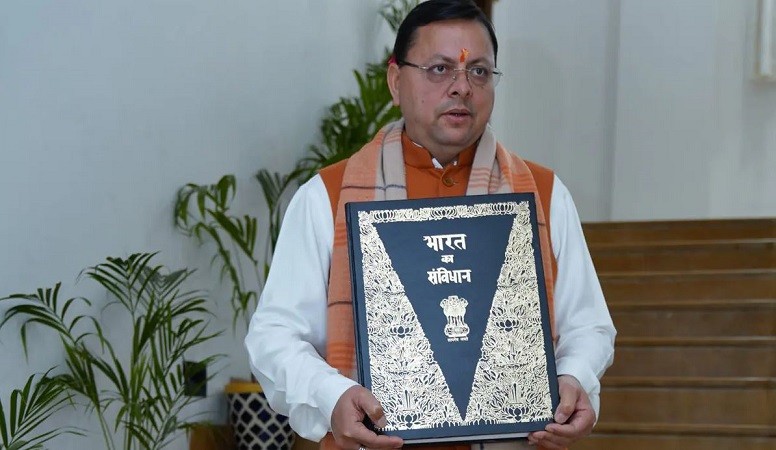
In a tumultuous session at the Uttarakhand Assembly, Chief Minister Pushkar Singh Dhami introduced the Uniform Civil Code Bill, marking a significant step towards standardizing laws governing personal matters. If approved, Uttarakhand would be the first state post-independence to implement such a code, aiming to streamline regulations concerning marriage, divorce, inheritance, and succession across religious lines. However, the move has sparked debates regarding cultural diversity, minority rights, and political agendas.
Amidst chaos in the Uttarakhand Assembly, Chief Minister Pushkar Singh Dhami presented the Uniform Civil Code Bill, amidst chants of "Jai Shree Ram." This bill, introduced during a special assembly session, could make Uttarakhand the first state post-independence to adopt the UCC, following in the footsteps of Goa during the Portuguese colonial era. Similarly, BJP-led states like Gujarat and Assam have pledged to enact the UCC, aligning with the party's ideological commitments.
Key Points of Uttarakhand's UCC Proposal:
The Uniform Civil Code seeks to standardize laws governing personal matters for all citizens, regardless of religious affiliations. Currently, India follows separate personal laws for different religious communities, making the UCC a topic of debate and contention.
Constitutional Perspective:
Article 44 of the Indian Constitution advocates for a Uniform Civil Code under the Directive Principles of State Policy. However, its implementation remains at the discretion of the government due to the complex and sensitive nature of the issue.
Diverse Civil Codes in India:
Different religious communities in India follow their respective personal laws. For instance, Hindu personal laws are based on ancient texts and customs, while Muslim personal laws are governed by Shariah.
Controversies Surrounding UCC:
The debate over the Uniform Civil Code is multifaceted, with arguments revolving around religious and cultural diversity, minority rights, political motivations, and gender equality.
While proponents see the UCC as a step towards gender equality and uniformity, opponents raise concerns about its impact on cultural autonomy and minority rights. The discussion continues as Uttarakhand moves closer to potentially enacting this significant legislation.
Uttarakhand Govt to Introduce Uniform Civil Code Bill in Legislative Assembly Today
Uttarakhand is ready for UCC, Section 144 Imposed ahead of assembly session